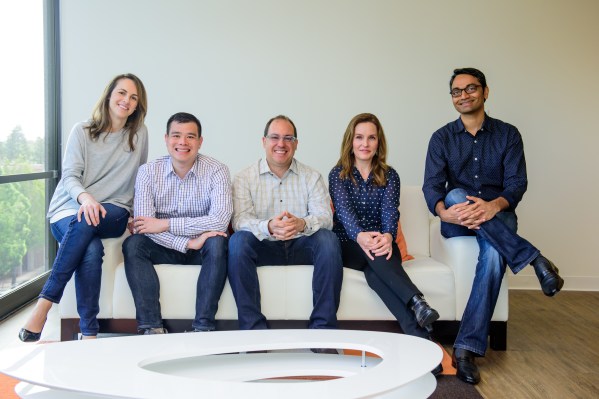When I first met Aydin Senkut in 2006, it was just months after he’d resigned from Google, where he was a senior manager responsible for strategic partner development in Asia Pacific. He was among a small number of “Googlaires” who had lots of money, great connections, and the ability to see many web startups before traditional VCs.
In fact, many in the industry viewed Senkut and his ilk as arrivistes, and Senkut has been on an unwavering mission since, first to first impress them, then to surpass them. His execution has been pretty spot on, too. Felicis Ventures, the San Francisco-based firm that he founded 10 years ago and he now manages with three other investors, just closed its fifth fund with $200 million. That’s nearly double the amount Felicis gathered up for its fourth fund less than two years ago.
Institutions are writing out big checks left and right these days. But it’s easy to understand why Felicis’s limited partners were particularly open to providing the firm with more capital. Felicis has invested in 180 startups to date. Three of those companies have gone public, including Fitbit and Shopify. At least three others — Credit Karma, Planet Labs, and Adyen — appear positioned to go public.
Meanwhile, another 60 companies in Felicis’s portfolio have enjoyed what Senkut calls “meaningful exits.” Most meaningful, seemingly, Felicis was an early investor in Cruise Automation, which is being acquired by General Motors for more than $1 billion; it backed the cloud infrastructure startup Meraki, acquired by Cisco for $1.2 billion in cash; it invested in Twitch, acquired by Amazon for $970 million in cash; and it backed Climate Corp., which Monsanto bought for roughly $930 million.
If you’re wondering about the number of companies that have flamed out after receiving a check from Felicis, Senkut says it’s is in the “very low digits; it’s in the teens percentage on a dollar-adjusted basis.”
When we talked earlier this week, Senkut suggested Felicis’s success so far owes to its strategy, which is to invest anywhere from seed amounts to large single-digit millions of dollars in an opening gambit. Its biggest first check to date went to the four-year-old, Sydney, Australia-based company Canva, which makes easy-to-use graphic design software.
Which highlights another, even bigger, distinction between many other firms and Felicis, according to Senkut: the firm is more global in scope than most venture firms its size. Along with Sydney, the firm has met bets in Amsterdam (Adyen), Canada (Shopify) and Finland (Rovio), among other places. In fact, the partners see China and India as the only two countries that warrant having local offices (which they don’t intend to establish).
Not only does everyone on staff travel extensively, but “everyone here speaks multiple languages,” says Senkut, who was born in Turkey and notes that Felicis’s other managing directors were also born outside the U.S., including Renata Quintini (Brazil); Sundeep Peechu (India); and Wesley Chan (Hong Kong), who joined Felicis from Google Ventures last year.
“Once we make up our mind in terms of themes,” says Senkut, “we look for the best companies, no matter where they are.”
While we were on the phone, I talked with Senkut of the some of the investors he shadowed when he’d first left Google, including famed seed-stage investor Ron Conway. I asked if Felicis has come to work closely with any particular firms as it has grown more powerful in its own right.
“Not especially,” he said. “I’m always respectful to people who helped me when I started. People gave me zero chance of success. I had zero deal flow. I had no network outside of Google, which had no alumni at that point. So I did whatever it took to build that network.”
These days, he suggested, Felicis is more comfortable blazing its own path.”One of the core aspects of what we’re trying to do is . . . go against the status quo. We have common [investments] with 50 venture firms. But everything we do is different, including investing across stages and geographies. People thought that was crazy.” It’s not looking that way anymore.
Pictured, left to right: Renata Quintini, Wesley Chan, Aydin Senkut, Felicis Ventures CFO Guergana Tomova, and Sundeep Peechu.
